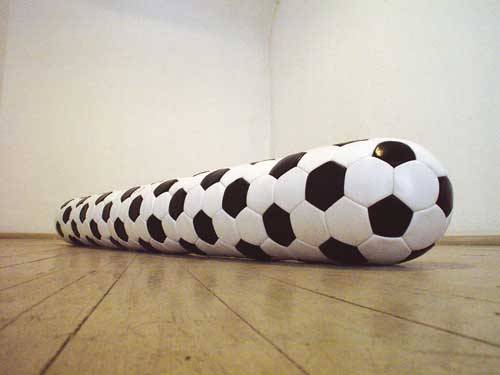
Monday, March 8, 2010
Treatise of Navigation
The ideas present in Duchamp's ready-mades are really ephemiral in that because the objects have a certain style and specific use at the time, this changes and decades later we are able to appreciate the aesthetic qualities present in objects of the past as their use and style is no longer relevant or common place.
Bourriaud says that today "art has neither an origin nor a metaphysical destination, and the work they exhibit is never a creation but an instance of postproduction"(158) This is only tru if we remove the context of an object and only view it through the lens of theory. If we wish we can find an origin and destination for any work if thats necessary which it might be under the threat of the postproduction label.
If the difference in art from different areas of the world is more because of industrial development rather than cultural differences, than are all art movements inevitable if a society is able to industrialize and eventually "informationalize"?
Is a movement less genuine if it occurs a second time but in a different part of the world? Is it possible that the history of aesthetics and ideas is inherent within human nature and will repeat themselves regardless of a cultures knowledge of history?
Sunday, March 7, 2010
Subscribe to:
Posts (Atom)











